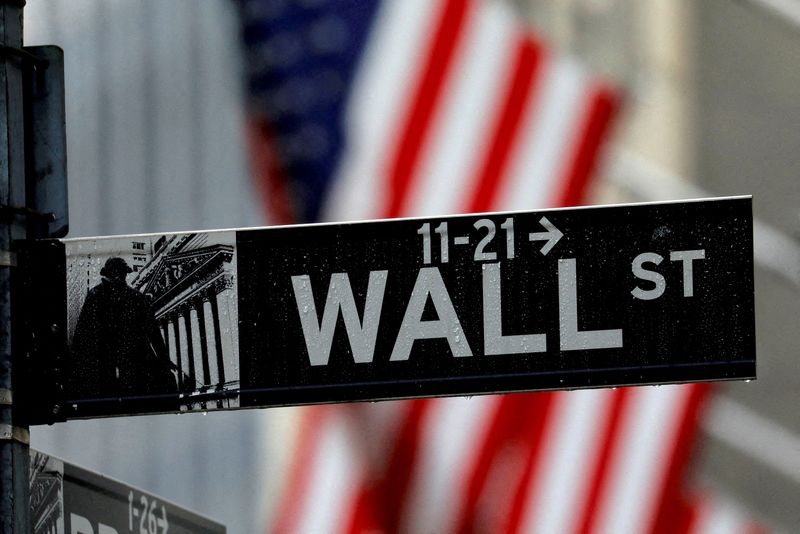By Niket Nishant and Chibuike Oguh
(Reuters) -U.S. and European bank stocks dropped on Tuesday on renewed investor worries about the health of the industry after ratings agency Moody's downgraded several U.S. lenders and Italy approved a surprise 40% windfall tax on its lenders.
Moody's cut credit ratings of several U.S. regional lenders on Monday and placed some banking giants on review for potential downgrade. It warned U.S. banks will find it harder to make money as interest rates remain high, funding costs climb and a recession looms. It also cited some lenders' exposure to commercial real estate as a concern.
"What we're doing here is recognizing some headwinds - we're not saying that the banking system is broken," Ana Arsov, managing director of financial institutions at Moody's, told Reuters in an interview.
The failures of three U.S. lenders earlier this year sparked the biggest industry crisis since 2008 and precipitated UBS Group's government-backed takeover of Credit Suisse (SIX:CSGN). While the turmoil has subsided in recent months, investors remain cautious.
"This is just another reminder that there are still challenges in the regional banking space," said Macrae Sykes, portfolio manager at Gabelli Funds in New York. "High exposure to commercial real estate, rising deposit and funding cost are some of the key concerns that the banks are facing."
The KBW Regional Banking Index lost 1.38% on Tuesday, while the shares of some of the banks downgraded by Moody's, including M&T Bank, Pinnacle Financial Partners, and BOK Financial Corp, fell between 1.7% and 2.1%.
Banks that were placed on review for potential downgrade closed lower, including Bank of New York Mellon (NYSE:BK), State Street (NYSE:STT), and Truist Financial. Truist and BNY Mellon declined to comment, while the others did not immediately respond to requests for comment.
The gloom also affected major lenders that were not mentioned by Moody's, with the broader S&P 500 Banks Index sliding almost 1.07%.
Investors have scaled down their expectations for future bank earnings, and markets have already priced in some of the factors Moody's cited, said Mike Mayo, a bank analyst at Wells Fargo (NYSE:WFC).
"We are probably in the later stages of this downward revision," Mayo told Reuters. "This is the toll of higher rates for longer, the potential of a recession. It's different from what happened in the March crisis, this is more an issue about rates, recession and risk."
Christopher Marinac, director of research at Janney Montgomery Scott, took a more sanguine view. "Nothing has changed on U.S. banks," said Marinac. "Second-quarter earnings proved that banks can experience weak revenues and still have improved capital ratios and stable tangible book value."
Major Italian banks Intesa Sanpaolo (BIT:ISP), Banco BPM (LON:0RLA) and UniCredit (LON:0RLS) fell between 5.9% and 9% after the government set a one-off 40% tax on profits reaped from higher interest rates.
Italian lenders weighed on the European bank index, which slid 3.54%.
Citigroup (NYSE:C) analysts calculated the tax could wipe nearly a fifth off Italian banks' 2023 net income, while Bank of America (NYSE:BAC) estimates showed the measure could generate up to 3 billion euros ($3.3 billion) for the government.
